Understanding the Core of Appointment Setting
Appointment setting is a crucial component of any effective sales strategy. It goes beyond simple cold calling or lead generation, serving as the bridge between generating interest and converting prospects into actual clients. Mastering appointment setting can directly impact revenue growth, client engagement, and brand reputation. It requires not only reaching out to potential customers but also creating meaningful connections that lead to scheduled meetings. Companies that prioritize strong appointment setting practices often experience higher conversion rates and more predictable sales pipelines. Recognizing the difference between casual outreach and targeted appointment setting helps teams focus on quality rather than quantity. An appointment setting masterclass equips professionals with the insights and techniques to turn initial interactions into valuable business opportunities.
Key Skills Every Appointment Setter Must Develop
Effective appointment setting depends on a combination of technical and interpersonal skills. Communication is paramount, including active listening, persuasive conversation, and demonstrating empathy to understand the prospect’s needs. Time management ensures that the most promising leads are prioritized and appointments are scheduled efficiently. Objection handling allows appointment setters to respond to resistance with confidence and creativity, transforming hesitant prospects into committed clients. Building rapport quickly over phone calls, emails, and virtual meetings helps establish trust, which is critical for securing appointments. Adaptability is also essential, as different industries, markets, and buyer personas may require varied approaches. Continuous improvement in these skills separates top-performing appointment setters from the average, making them invaluable to any sales team.
Tools and Technologies for Efficient Appointment Setting
The right tools can significantly enhance appointment setting efficiency. CRM software allows teams to track leads, manage pipelines, and schedule appointments seamlessly. Email automation tools ensure timely follow-ups and personalized communication with prospects. Calendar scheduling solutions eliminate back-and-forth communication, saving time for both the salesperson and the client. AI-driven prospecting tools can identify high-potential leads, analyze communication patterns, and provide actionable insights for outreach strategies. Integration between CRM, email, and scheduling tools ensures a smooth workflow and prevents leads from slipping through the cracks. Analytics platforms allow teams to measure performance, identify gaps, and optimize strategies continuously. Mastery of these tools is an essential part of any appointment setting masterclass, as it transforms theory into actionable results.
Crafting Effective Scripts and Messaging
Creating compelling outreach scripts is critical for appointment setting success. Scripts should balance professionalism with approachability, giving the prospect a reason to engage without feeling pressured. Personalization is key; using the prospect’s name, referencing their company, or noting specific pain points can significantly increase response rates. Scripts must also address potential objections proactively, allowing the appointment setter to redirect conversations smoothly. Adjustments may be needed depending on the target industry or audience segment, ensuring the message resonates effectively. Including open-ended questions encourages dialogue and uncovers valuable information about the prospect’s needs. Testing and refining scripts over time ensures continuous improvement and better conversion rates. A well-crafted script acts as a roadmap, guiding appointment setters through conversations with confidence and consistency.
Strategies to Maximize Appointment Setting Success
High-performing appointment setters implement strategic outreach approaches to maximize results. Multi-channel outreach, combining phone calls, emails, and LinkedIn messages, increases the chances of connecting with prospects. Timing and follow-ups are critical; contacting leads at the right moment and maintaining consistent engagement can significantly improve appointment rates. Properly qualifying leads before scheduling appointments ensures that sales teams spend time on prospects with genuine potential. Tracking metrics like response rate, conversion rate, and scheduled appointments allows teams to evaluate the effectiveness of their strategies. Regular review of KPIs helps identify patterns, allowing adjustments for better results. Building a repeatable system ensures that appointment setting efforts remain scalable and consistent. The combination of strategic planning, persistence, and data-driven insights ensures sustained appointment setting success.
Overcoming Common Challenges in Appointment Setting
Appointment setters often face obstacles that require resilience and adaptability. Handling rejection is part of the process, and maintaining motivation is critical to achieving long-term success. Gatekeepers and decision-makers can create barriers, requiring tactful navigation to reach the right contacts. Prospects may lose interest over long sales cycles, making follow-up and engagement strategies essential. Market shifts and changing buyer behavior demand constant adaptation, ensuring messaging and techniques remain relevant. Developing patience and a proactive mindset helps appointment setters overcome frustrations. Continuous training and mentorship from experienced professionals can provide guidance to address these challenges effectively. By anticipating and addressing common hurdles, appointment setters can maintain productivity and achieve measurable results.
Advanced Techniques for Master Appointment Setters
Top appointment setters employ advanced strategies to enhance their effectiveness. Social selling is a powerful tool, allowing appointment setters to engage with prospects on LinkedIn and other platforms before outreach. Behavioral insights help anticipate objections and tailor messages to individual preferences. Nurturing leads with valuable content before scheduling appointments builds credibility and trust. Implementing a feedback loop allows appointment setters to learn from each interaction and continuously refine their approach. Leveraging analytics to identify patterns in responses and engagement can optimize outreach campaigns. Advanced techniques often involve collaboration between sales and marketing teams to align messaging and timing. Appointment setting mastery requires a combination of skill, technology, and strategy to consistently generate high-quality meetings.
Real-World Practices for Effective Appointment Setting
Successful appointment setting workflows emphasize structure and efficiency. Teams often develop standardized processes that include lead research, outreach, follow-up, and scheduling protocols. High-performing appointment setters focus on creating genuine connections rather than just filling calendars. Metrics such as response rate, lead quality, and appointment-to-sale ratio are monitored to ensure continuous improvement. Common practices include segmenting leads based on industry, buyer persona, and engagement level to prioritize efforts effectively. Continuous training, script updates, and peer feedback contribute to consistent performance enhancements. Scaling appointment setting requires maintaining quality while increasing volume through automation and structured workflows. Effective practices blend consistency, strategy, and adaptability to maintain a strong pipeline.
Key Benefits of an Appointment Setting Masterclass
Investing in an appointment setting masterclass provides significant advantages. Participants learn proven techniques to increase appointment rates and improve lead conversion. Skills like objection handling, script writing, and rapport building are developed in a structured environment. Exposure to tools and technologies ensures efficient workflow and better time management. The training equips professionals with strategies for multi-channel outreach, lead nurturing, and data-driven optimization. Enhanced confidence in interacting with prospects leads to more meaningful conversations and scheduled appointments. Teams that participate in appointment setting masterclasses often see measurable improvements in sales performance and revenue growth.
FAQ About Appointment Setting Masterclass
What is the ideal number of appointments to set per week?
The ideal number varies based on industry, target market, and sales cycle length, but aiming for a consistent weekly goal aligned with team capacity is essential.
How do I handle prospects who are hesitant to commit?
Use active listening to understand their concerns, provide relevant information, and suggest a low-commitment next step to keep the conversation moving.
Can appointment setting work for B2C as well as B2B?
Yes, appointment setting can be adapted for both B2C and B2B markets, although the approach, messaging, and lead qualification criteria may differ.
What is the role of follow-up emails in appointment setting?
Follow-up emails are crucial to reinforce the message, remind prospects of the benefits, and schedule meetings at the right time.
How do I measure the ROI of appointment setting efforts?
Tracking metrics like scheduled appointments, conversion rates, and revenue generated per appointment provides insight into ROI.
Takeaway
Mastering appointment setting is a game-changer for any sales professional or team aiming to improve efficiency, increase lead conversion, and boost revenue. By developing core skills, leveraging the right tools, crafting effective scripts, and implementing strategic outreach, appointment setters can consistently secure high-quality meetings. Overcoming challenges, adopting advanced techniques, and following proven practices ensures long-term success. Participation in an appointment setting masterclass equips professionals with the knowledge and confidence to excel in this critical aspect of sales. Focusing on continuous improvement, measurement, and refinement allows appointment setters to stay ahead of market changes and maximize results consistently. Investing time and effort into mastering appointment setting is an investment in both personal development and business growth.











